The Ancient Secret to Glowing Skin
Discover eight key green tea skincare benefits and unlock the secret to radiant, healthy skin. Green tea, rich in antioxidants and anti-inflammatory compounds, can address a variety of skincare concerns. This list explores how green tea can combat aging, fight acne, reduce inflammation, protect against sun damage, minimize pores, control oil, improve hydration, and brighten skin tone. Learn how incorporating green tea into your routine can lead to a noticeable improvement in your complexion.
1. Anti-Aging Effects
One of the most celebrated green tea skincare benefits lies in its potent anti-aging properties. Green tea is a rich source of polyphenols, particularly a powerful antioxidant known as EGCG (epigallocatechin gallate). These antioxidants work tirelessly to combat free radicals, unstable molecules that damage skin cells and contribute to premature aging. By neutralizing these free radicals, green tea helps reduce the appearance of fine lines, wrinkles, and age spots, promoting a more youthful complexion. Furthermore, the catechins in green tea offer protection against UV damage, a primary culprit behind photoaging, which is the premature aging of skin caused by repeated exposure to ultraviolet radiation. Green tea also helps protect collagen and elastin, the proteins responsible for skin's elasticity and firmness. This helps maintain skin's youthful bounce and prevents sagging. Green tea, being rich in antioxidants, can help protect your skin from premature aging. To learn more about how antioxidants benefit your skin, check out this article on the power of antioxidants.
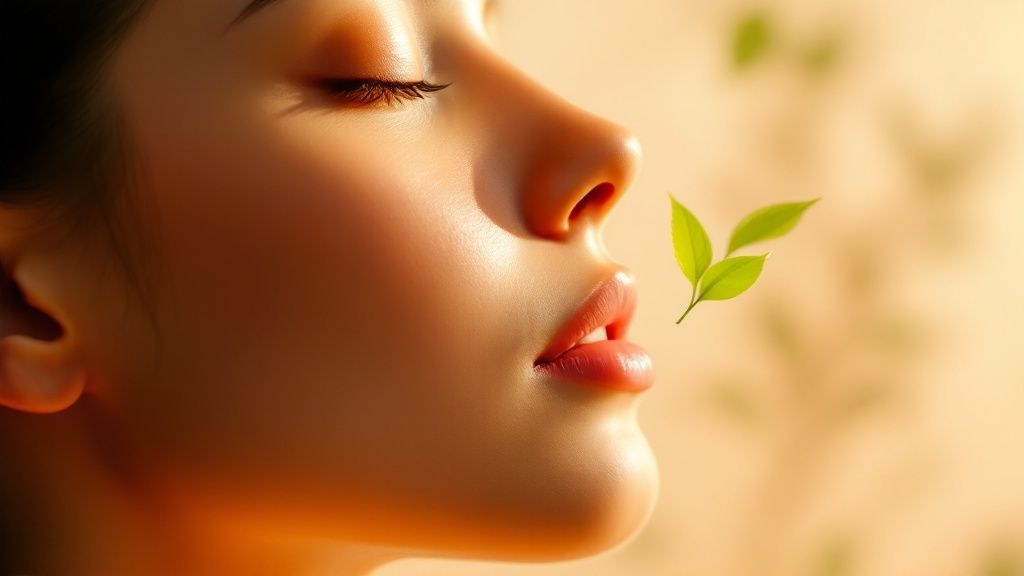
This natural approach to anti-aging makes green tea a desirable ingredient in numerous skincare products. For example, the renowned SK-II Facial Treatment Essence utilizes green tea extracts for its anti-aging benefits, while Innisfree’s Green Tea line has shown significant improvement in skin elasticity in clinical studies. These examples highlight the efficacy of green tea in addressing visible signs of aging and promoting skin health. Learn more about Anti-Aging Effects
Features:
- High in EGCG antioxidants
- Neutralizes free radicals
- Protects collagen and elastin
- Contains anti-inflammatory properties
Pros:
- Reduces visible signs of aging
- Helps maintain skin elasticity
- Non-invasive approach to anti-aging
- Can be used alongside other skincare ingredients
Cons:
- Results develop gradually over time
- May not be as potent as prescription retinoids
- Concentration of active compounds varies by product
Tips for Using Green Tea in Your Skincare Routine:
- Consistency is key: Use green tea skincare products consistently for at least 8-12 weeks to see noticeable results.
- Layering for optimal absorption: Apply green tea products before heavier creams or moisturizers for better absorption into the skin.
- Preserving potency: Store your green tea products away from direct sunlight and heat to preserve the antioxidant properties.
The popularity of green tea in skincare has been significantly influenced by Korean skincare brands like Innisfree and AmorePacific, which often incorporate the ingredient into their product lines. Japanese skincare traditions, with their focus on tea rituals, have also contributed to the widespread use of green tea for its skin-enhancing benefits. Furthermore, dermatologists like Dr. Leslie Baumann, who researches botanical ingredients, have highlighted the scientific basis for green tea's effectiveness in skincare. This combination of traditional practices and scientific backing has solidified green tea's place as a powerful and sought-after ingredient for achieving a youthful and radiant complexion.
2. Acne-Fighting Properties
One of the most celebrated green tea skincare benefits lies in its remarkable ability to combat acne. Green tea is a powerhouse of antimicrobial and anti-inflammatory compounds that effectively target several root causes of breakouts. Polyphenols, and specifically epigallocatechin gallate (EGCG), are key players in this process. These potent antioxidants work by reducing sebum production, which is often a major contributor to acne development. Furthermore, they inhibit the growth of P. acnes bacteria, a strain known to exacerbate acne. The anti-inflammatory properties of green tea also help soothe the redness and swelling associated with inflammatory acne, offering a gentler approach to clear skin.
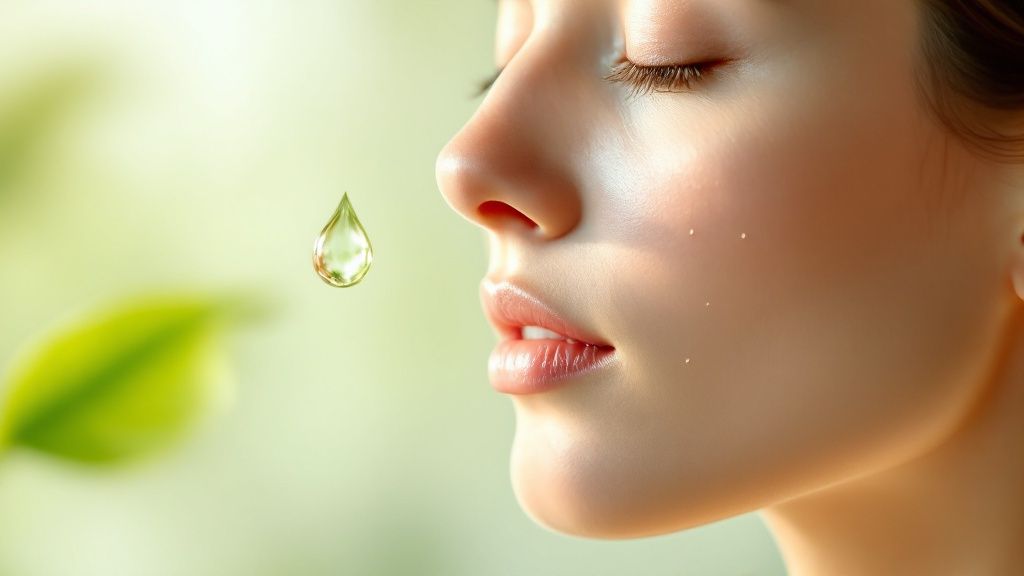
Green tea’s multifaceted approach to acne treatment makes it a valuable addition to any skincare routine. Its features include antimicrobial activity against acne-causing bacteria, sebum reduction, anti-inflammatory properties, and the presence of tannins which act as natural astringents to tighten pores. This combination of actions allows green tea to address multiple causes of acne simultaneously.
This natural remedy offers several advantages over conventional acne treatments. It is generally gentler on the skin, minimizing the potential for irritation and dryness often associated with harsher ingredients. Furthermore, green tea presents minimal side effects compared to prescription options, making it a suitable choice for those with sensitive skin. It can also be used preventatively to maintain clear skin.
While green tea offers numerous benefits for acne-prone skin, it's important to be aware of its limitations. It may not be potent enough for severe cystic acne, and consistent use is key to seeing significant improvements. Furthermore, green tea as an acne treatment is not as extensively studied as ingredients like benzoyl peroxide.
Products like The Body Shop's Tea Tree and Green Tea line have demonstrated a reduction in acne lesions, showcasing the practical application of this powerful ingredient. Studies published in the Journal of Investigative Dermatology further support these findings, showing that creams containing 3% green tea extract can reduce sebum production by up to 27%. Learn more about Acne-Fighting Properties
To maximize the acne-fighting benefits of green tea, incorporate these tips into your routine:
- Use green tea-based toners after cleansing: This helps regulate oil production throughout the day.
- Apply green tea spot treatments directly to active breakouts: This provides targeted relief and promotes faster healing.
- Refrigerate green tea products: The cooling effect can further soothe inflamed acne.
The efficacy of green tea in skincare has been popularized by figures such as dermatologist Dr. Zoe Diana Draelos, known for her research on botanical anti-acne treatments, Korean brand COSRX with their popular Green Tea Gel Cream for acne-prone skin, and natural skincare pioneer Tata Harper.
3. Reduced Skin Inflammation
One of the most compelling green tea skincare benefits lies in its remarkable anti-inflammatory properties. Green tea is packed with powerful compounds, especially catechins like Epigallocatechin gallate (EGCG), that actively work to soothe irritated, red, and inflamed skin. These catechins inhibit the activity of pro-inflammatory enzymes and suppress the production of inflammatory cytokines, effectively calming the skin and reducing visible redness. This makes green tea a valuable ingredient for managing various skin conditions, including rosacea, eczema, psoriasis, and general skin sensitivity. Furthermore, the anti-inflammatory action of green tea can help expedite healing after sunburn or cosmetic skin procedures. The amino acid L-theanine, also present in green tea, contributes to calming the skin and reducing histamine reactions, further enhancing its soothing effects.

This benefit earns green tea a prominent place in any skincare routine aimed at calming and balancing the complexion. The specific features, such as inhibiting pro-inflammatory enzyme activity and reducing cytokine production, contribute to its efficacy. A significant advantage is that green tea offers a non-steroidal anti-inflammatory option, making it generally safe for long-term use and compatible with sensitive skin. This is especially beneficial for individuals who may react negatively to harsher anti-inflammatory ingredients. Products like Dr. Jart+'s Cicapair line leverage the power of green tea to specifically target redness and inflammation. Clinical trials have even shown that green tea compresses can reduce post-procedure inflammation by up to 40%, highlighting its potential in professional settings. Learn more about Reduced Skin Inflammation
While green tea offers numerous advantages for calming inflammation, it’s important to acknowledge potential drawbacks. It may be less potent than prescription anti-inflammatories, and the results can vary depending on the severity of the inflammation. Additionally, some formulations may contain additional ingredients that could cause irritation for certain individuals.
To maximize the anti-inflammatory effects of green tea skincare, consider storing your products in the refrigerator. For those with sensitive skin, layering green tea products under heavier treatments can create a protective barrier and minimize potential irritation. Green tea skincare can also be used as a first-line treatment for minor irritation before resorting to stronger medications. The popularity of green tea in skincare has been fueled by experts like dermatologist Dr. Whitney Bowe, a proponent of anti-inflammatory skincare, and brands like AMOREPACIFIC, known for its research on green tea's anti-inflammatory benefits. Tatcha founder Victoria Tsai also incorporates Japanese green tea into formulations designed for sensitive skin, demonstrating its widespread recognition in the beauty industry.
4. Protection Against Sun Damage
Harnessing the power of antioxidants is crucial for healthy, radiant skin, and green tea delivers on this front. One of the most compelling green tea skincare benefits is its remarkable ability to protect against the damaging effects of the sun's ultraviolet (UV) radiation. While it's essential to understand that green tea is not a replacement for sunscreen, it acts as a potent ally in your sun protection strategy. Green tea, particularly rich in catechins like epigallocatechin gallate (EGCG), works by neutralizing the free radicals generated by UV exposure. These free radicals are unstable molecules that can damage skin cells, leading to premature aging, dark spots, and even skin cancer. By neutralizing these harmful molecules, green tea helps mitigate the damage and preserve skin health. Furthermore, it inhibits matrix metalloproteinases (MMPs), enzymes that break down collagen, the protein responsible for skin's firmness and elasticity. Additionally, L-theanine, an amino acid found in green tea, assists in DNA repair, further fortifying the skin's defenses against sun-induced damage.

Research further solidifies green tea's photoprotective prowess. Studies, like one published in the Journal of Nutritional Biochemistry, have demonstrated a significant reduction in UV-induced skin damage with topical green tea application, with some showing up to a 33% reduction. This makes green tea a valuable addition to any skincare routine, especially for those concerned about sun damage and premature aging. Products like Supergoop!'s Antioxidant-Infused Sunscreen Mist with Green Tea exemplify how this powerful ingredient is being incorporated into modern skincare formulations. You can learn more about Protection Against Sun Damage to understand the science behind these benefits. This benefit earns green tea a rightful place on the list of top skincare ingredients, particularly for those seeking natural and effective ways to protect their skin.
Features and Benefits Recap:
- Neutralizes UV-generated free radicals: Prevents oxidative stress and damage.
- Reduces UV-induced inflammation: Soothes redness and irritation.
- Inhibits MMPs: Preserves collagen and maintains skin elasticity.
- Contains L-theanine: Aids in DNA repair.
Pros:
- Complements and enhances the protection offered by sunscreen.
- Provides a robust antioxidant defense against environmental stressors.
- Helps prevent the accumulation of long-term UV damage, mitigating the signs of photoaging.
- Reduces post-sun inflammation and promotes faster recovery.
Cons:
- Is not a substitute for sunscreen and should always be used in conjunction with a dedicated SPF product.
- Effectiveness depends on the concentration of active green tea compounds in the product.
- Offers limited inherent SPF protection on its own.
Tips for Incorporating Green Tea into Your Skincare:
- Apply green tea serums or lotions under your sunscreen for amplified protection.
- Use green tea products both before and after sun exposure to maximize benefits.
- Look for products containing at least 2-3% green tea extract for meaningful photoprotection.
The power of green tea in skincare has been popularized by experts like dermatologist Dr. Patricia Wexler, who champions antioxidant protection, and researcher Dr. Stephen Hsu, whose studies established green tea's photoprotective effects. Brands like Origins have also been pioneers in incorporating green tea into photoprotective skincare formulations, making it more accessible to consumers. This powerful ingredient is a testament to the benefits that natural ingredients can offer, particularly for those seeking a holistic approach to skincare and sun protection.
5. Pore Reduction and Oil Control
Enlarged pores and excess oil can be frustrating skincare concerns for many. Green tea, a powerhouse of beneficial compounds, offers a natural and effective approach to managing both. This makes it a valuable addition to any skincare routine aimed at achieving a clearer, more balanced complexion. Green tea skincare benefits extend to pore refinement and oil control thanks to its unique composition.
Green tea contains tannins, which act as natural astringents. Astringents cause temporary contraction of skin tissues, making pores appear smaller. Unlike harsh alcohol-based astringents that can dry out the skin, green tea offers a gentler alternative. This makes it suitable even for those with combination skin, who experience oiliness in certain areas (like the T-zone) but dryness in others.
Beyond its astringent properties, green tea boasts a rich concentration of catechins, specifically Epigallocatechin gallate (EGCG). EGCG plays a key role in regulating sebum production by inhibiting the activity of 5-alpha-reductase, an enzyme that stimulates oil glands. This targeted action helps control excess oil without stripping the skin of its essential moisture. Furthermore, green tea’s anti-inflammatory properties help reduce inflammation around pores, a common contributor to their enlarged appearance. Its antimicrobial effects also assist in keeping pores clear of buildup that can stretch them out and make them more visible.
Features and Benefits:
- Natural Astringent Properties: Temporarily tightens skin and minimizes the appearance of pores.
- Sebum Regulation: Controls oil production by inhibiting 5-alpha-reductase.
- Anti-inflammatory Action: Reduces pore-enlarging inflammation.
- Antimicrobial Effects: Keeps pores clear of debris and buildup.
Pros:
- Gentler and less drying than alcohol-based astringents.
- Addresses multiple causes of enlarged pores.
- Suitable for daily use without irritation.
- Effective for combination skin.
Cons:
- Pore-tightening effects are temporary.
- May not be sufficient for severely oily skin.
- Results vary depending on the underlying causes of enlarged pores.
Examples of Successful Implementation:
- Paula's Choice EARTH SOURCED Purely Natural Refreshing Toner: This toner leverages the power of green tea to refresh and refine the skin.
- Studies: Research indicates a potential 25% reduction in sebum production after 8 weeks of consistent green tea extract use. (Note: It's beneficial to cite the specific study if available).
- Korean skincare brands like Innisfree with their Green Tea Balancing line: This popular line highlights the effectiveness of green tea in achieving balanced, healthy skin.
- Boscia skincare with their Green Tea Oil-Control products: Boscia offers a range of products formulated with green tea to address oiliness and refine pores.
Actionable Tips:
- Incorporate a green tea toner into your routine after cleansing to temporarily tighten pores and prep the skin for subsequent products.
- For targeted oil control, apply green tea serums or moisturizers specifically to the T-zone.
- Refrigerate green tea mists for an extra refreshing and pore-tightening boost.
By addressing both excess oil and inflammation, green tea offers a holistic approach to pore refinement. While the effects on pore size are temporary, consistent use can contribute to a smoother, more balanced complexion. This makes green tea a worthy contender in the quest for clearer, healthier-looking skin and secures its spot on this list of green tea skincare benefits.
6. Improved Skin Hydration
Green tea, renowned for its antioxidant properties, offers a surprising benefit for skincare: improved hydration. While it possesses astringent qualities that might seem counterintuitive for hydration, green tea actually boosts moisture levels through several mechanisms, securing its place on this list of green tea skincare benefits. This makes it a valuable ingredient for those seeking balanced hydration, particularly if they're also concerned with addressing skin concerns like inflammation or maintaining a healthy skin barrier.
Green tea contains polysaccharides, natural humectants that attract and bind water to the skin, drawing moisture from the environment and deeper skin layers to the surface. Furthermore, its rich polyphenol content plays a crucial role in protecting and strengthening the skin barrier function. A compromised skin barrier leads to increased transepidermal water loss (TEWL), leaving skin dry and dehydrated. By fortifying this barrier, green tea helps minimize water loss, locking in moisture for longer-lasting hydration. The anti-inflammatory properties of green tea also contribute to improved hydration. Inflammation can disrupt the skin's natural moisture balance, and by calming irritated skin, green tea helps restore optimal hydration levels. This multifaceted approach to hydration makes green tea suitable for various skin types, including oily skin, as it balances hydration without increasing oiliness.
The benefits of green tea for skin hydration are supported by both scientific studies and real-world examples. Studies have shown that green tea extract can improve skin barrier function by up to 13%, leading to better moisture retention. Products like the Fresh Black Tea Kombucha Facial Treatment Essence demonstrate impressive results, boasting increased hydration for up to 24 hours. Luxury brands like Tatcha, known for their green tea-infused hydrating products, and TONYMOLY, with their hydration-focused Chok Chok Green Tea line, further highlight the ingredient's popularity and effectiveness in skincare. Dermatologist Dr. Joshua Zeichner, a proponent of barrier-supporting ingredients, also advocates for the use of green tea in skincare routines.
Pros:
- Suitable for all skin types, including oily skin.
- Provides balanced hydration without feeling heavy.
- Addresses both hydration and overall skin health.
- Compatible with other hydrating ingredients.
Cons:
- May require additional emollients for very dry skin types.
- Hydration benefits can be overshadowed by astringent properties in some formulations.
- Not as intensely hydrating as dedicated humectants like hyaluronic acid.
Tips for maximizing green tea's hydrating benefits:
- Layering: Apply a green tea toner under heavier moisturizers to enhance hydration.
- Refreshing Mist: Use a green tea hydrating mist throughout the day to refresh and replenish moisture.
- Combination Power: Look for products that combine green tea with hyaluronic acid for amplified hydration.
By incorporating green tea into your skincare routine, you can achieve balanced, healthy hydration while simultaneously addressing other skin concerns, making it a truly valuable and versatile ingredient.
7. Brightening and Even Skin Tone
Uneven skin tone, characterized by dark spots, hyperpigmentation, and discoloration, can be a frustrating skincare concern. Thankfully, one of the compelling green tea skincare benefits lies in its remarkable ability to brighten the complexion and promote a more even skin tone. This natural approach offers a gentler alternative to harsh chemical brighteners, making it a popular choice for those seeking radiant and luminous skin. This benefit alone secures green tea's spot on the list of must-have skincare ingredients.
Green tea's brightening power stems from its rich concentration of polyphenols, particularly a potent antioxidant called epigallocatechin gallate (EGCG). EGCG works by inhibiting tyrosinase, the enzyme responsible for melanin production. By suppressing tyrosinase activity, green tea effectively reduces the formation of melanin, the pigment that causes dark spots and uneven skin tone. This not only helps to fade existing hyperpigmentation caused by sun damage, inflammation, and aging but also prevents new dark spots from forming. Furthermore, green tea's inherent antioxidant and anti-inflammatory properties work synergistically to soothe the skin and reduce redness, further contributing to a more uniform complexion.
Several studies and real-world examples highlight the efficacy of green tea for brightening the skin. Research indicates that green tea extracts can reduce UV-induced pigmentation by up to 25%. Amorepacific's Vintage Single Extract Essence, a popular product featuring green tea, has also shown clinical improvement in skin brightness. The long-standing tradition of incorporating green tea into Japanese skincare rituals for luminous skin further underscores its brightening benefits. Korean brand Innisfree has also capitalized on this benefit with their Green Tea Brightening line, demonstrating the widespread recognition of green tea's brightening capabilities.
Features and Benefits:
- Inhibits tyrosinase enzyme activity: Directly targets the root cause of melanin production.
- Reduces melanin production: Less melanin means fewer dark spots and a brighter complexion.
- Fades existing hyperpigmentation: Helps to diminish the appearance of existing sunspots and age spots.
- Prevents new dark spots from forming: Proactive protection against future discoloration.
Pros:
- Gentler than chemical brightening agents like hydroquinone: Reduces the risk of irritation and sensitivity.
- Addresses multiple causes of uneven skin tone: Targets sun damage, inflammation, and age-related discoloration.
- Safe for long-term use: Can be incorporated into your daily skincare routine without concern.
- Works well in combination with other brightening ingredients: Synergistic effects with ingredients like vitamin C.
Cons:
- Results develop more gradually than stronger brightening agents: Requires patience and consistent use.
- May not be effective for deep or hormonal melasma: More intensive treatments may be necessary for these conditions.
- Requires consistent use for visible results: Benefits are best seen with regular application.
Tips for maximizing green tea's brightening benefits:
- Consistency is key: Use green tea products consistently both morning and night for optimal results.
- Boost the brightening power: Combine green tea with vitamin C for enhanced effects.
- Sun protection is essential: Always use sunscreen when using brightening products, including those with green tea, to prevent new pigmentation from forming. This is crucial because newly brightened skin is often more susceptible to sun damage.
Dermatologist Dr. Heather Rogers, a proponent of natural brightening alternatives, frequently recommends green tea for achieving a more even and radiant complexion. This, coupled with the success of brands like Innisfree and the enduring popularity of green tea in Japanese skincare, solidifies its position as a powerful and effective natural brightener. By incorporating green tea into your skincare routine, you can harness its remarkable benefits to achieve a brighter, more even, and naturally luminous complexion.
8. Soothing Sensitive and Reactive Skin
If you're constantly battling redness, itching, or burning, you know the struggle of sensitive and reactive skin. Green tea skincare benefits extend remarkably to those with easily irritated skin, offering a gentle yet powerful solution. This makes it a must-have in any sensitive skincare routine and earns its spot on this list. Green tea's calming properties stem from a potent combination of compounds that work synergistically to soothe and strengthen your skin's natural defenses.
So, how does it work? Green tea contains polyphenols, powerful antioxidants that combat neurogenic inflammation, a key culprit behind skin sensitivities. It also boasts L-theanine, an amino acid that cleverly blocks irritant receptors, preventing that cascade of reactions that leads to redness and discomfort. Furthermore, the renowned antioxidant EGCG (epigallocatechin gallate) calms inflammatory pathways triggered by environmental stressors like pollution and UV radiation. This multi-pronged approach addresses both the immediate sensations of sensitivity and the underlying causes, making green tea a valuable long-term solution.
The benefits translate to tangible improvements for conditions like sensitive skin syndrome, rosacea, and even contact dermatitis. Green tea can provide immediate relief from itching and burning, while simultaneously strengthening the skin's defensive barrier over time, reducing future reactions. This can even help reduce reliance on harsher steroid treatments. Learn more about Soothing Sensitive and Reactive Skin
Many skincare lines have harnessed the power of green tea for sensitive skin. The Dr. Andrew Weil for Origins Mega-Mushroom line, for example, combines green tea with other soothing botanicals for a comprehensive calming effect. Clinical studies further validate these benefits, with some showing a 56% reduction in skin reactivity after just 4 weeks of green tea extract application. First Aid Beauty also incorporates green tea into their Ultra Repair line, a popular choice for sensitive skin. The popularity of green tea in skincare for sensitive skin is further championed by dermatologists like Dr. Leslie Baumann, developer of the Skin Type Solutions system, and Dr. Jeanette Graf, who specializes in sensitive skin treatments.
While green tea is generally non-irritating for most, even those with the most reactive skin types, navigating product choices requires careful consideration. Here are a few tips:
- Patch test: Even with gentle ingredients, always perform a patch test on a small area before applying a new product all over your face, especially if your skin is extremely reactive.
- Minimalist formulations: Look for products with minimal ingredients, avoiding fragrances and potential sensitizers.
- Refrigeration: Keeping your green tea skincare refrigerated can enhance its calming and soothing effects.
While green tea offers numerous advantages for sensitive skin, it’s important to acknowledge potential drawbacks. Some formulations may contain additional ingredients that can cause irritation, negating the benefits of the green tea itself. For severe cases of dermatitis, green tea alone may not be sufficient and should be used as part of a broader treatment plan. Finally, while rare, individual sensitization to green tea is possible.
By understanding the unique benefits and potential drawbacks of green tea, you can make informed decisions about incorporating it into your skincare routine and experience the soothing relief it offers for sensitive and reactive skin.
Green Tea Skincare Benefits Comparison
| Benefit | Implementation Complexity 🔄 | Resource Requirements ⚡ | Expected Outcomes ⭐📊 | Ideal Use Cases 💡 | Key Advantages ⭐ |
|---|---|---|---|---|---|
| Anti-Aging Effects | Moderate; requires consistent use | Moderate; products with EGCG extracts | Gradual reduction of wrinkles and firmness ⭐ | Aging skin, photoaging prevention | Non-invasive, improves elasticity, UV protection |
| Acne-Fighting Properties | Moderate; needs regular application | Moderate; antimicrobial & anti-inflammatory components | Reduced acne lesions and sebum production ⭐ | Mild to moderate acne, oily skin | Gentle, multi-cause acne targeting, fewer side effects |
| Reduced Skin Inflammation | Low to moderate; easy to integrate | Low; mostly topical anti-inflammatory | Calmer, less red and inflamed skin ⭐ | Rosacea, eczema, post-procedure inflammation | Non-steroidal, safe for long-term use |
| Protection Against Sun Damage | Moderate; complements sunscreen | Moderate; antioxidant-rich formulations | Enhanced UV protection and reduced damage ⭐ | UV exposure protection, photoaging prevention | Antioxidant support, reduces DNA damage |
| Pore Reduction and Oil Control | Low to moderate; frequent topical use | Low; natural astringents in formulations | Temporary pore tightening and less oil ⚡ | Enlarged pores, combination to oily skin | Non-drying, multi-factor pore control |
| Improved Skin Hydration | Moderate; layering with moisturizers | Moderate; humectants and barrier protectors | Balanced hydration without heaviness ⭐ | All skin types needing moisture balance | Hydrates without increasing oiliness |
| Brightening and Even Skin Tone | Moderate; consistent use required | Moderate; melanin-inhibiting ingredients | Gradual reduction in hyperpigmentation ⭐ | Uneven skin tone, sun spots, mild discoloration | Gentler than chemical brighteners |
| Soothing Sensitive and Reactive Skin | Low; suitable for simple routines | Low; calming active compounds | Immediate and long-term skin calmness ⭐ | Sensitive, reactive, and irritated skin | Non-irritating, reduces sensitivity, barrier support |
Embrace the Power of Green Tea
From combating the visible signs of aging to soothing sensitive skin, the green tea skincare benefits discussed in this article highlight the remarkable potential of this natural ingredient. We've explored how green tea can fight acne and reduce inflammation, protect against sun damage, minimize pores and control oil, improve skin hydration, and promote a brighter, more even skin tone. Mastering the understanding of these green tea skincare benefits allows you to make informed choices about your skincare routine, leading to a healthier and more radiant complexion. By incorporating green tea into your regimen, you're not only addressing specific skin concerns but also embracing a holistic approach to skincare that harnesses the power of nature.
Whether you're battling breakouts, seeking a youthful glow, or simply looking to enhance your skincare routine, the versatility of green tea makes it a valuable addition for all skin types. The numerous green tea skincare benefits truly make it a powerhouse ingredient.
Ready to experience the transformative power of green tea for yourself? Discover an exquisite selection of authentic Japanese green tea-infused skincare products at Buy Me Japan. We curate only the highest quality products to help you achieve your skincare goals and unlock the secrets of Japanese beauty.
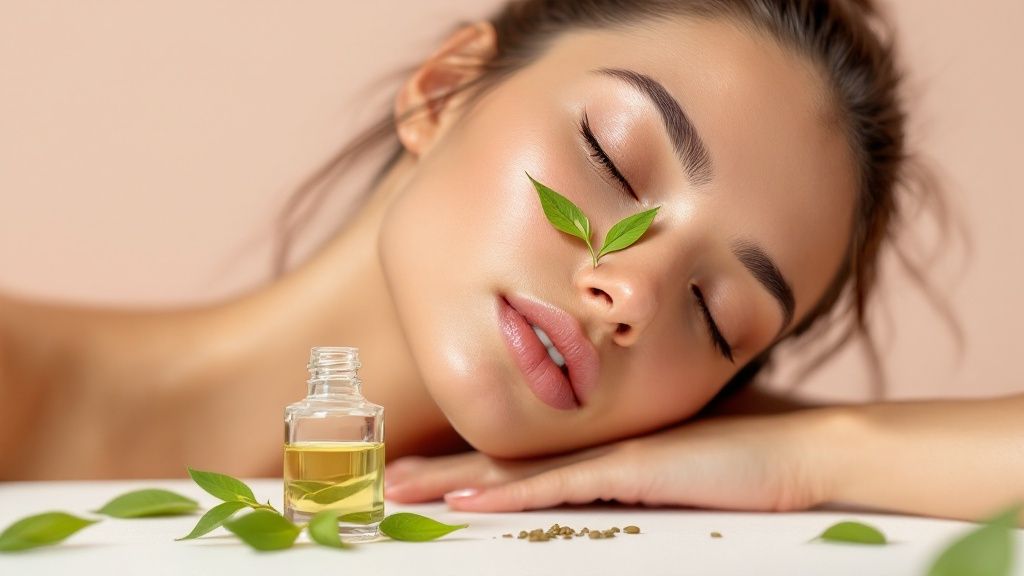
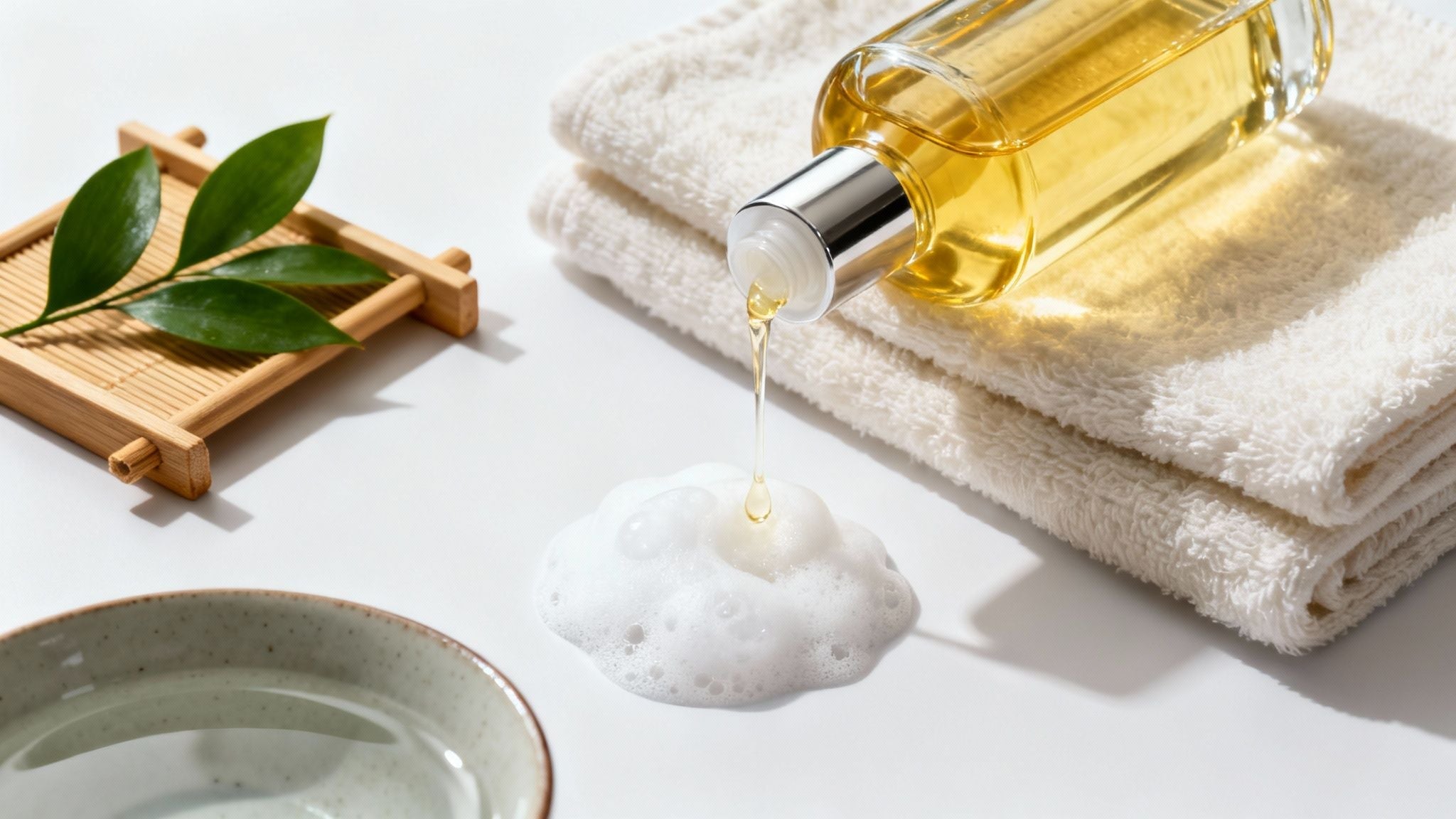
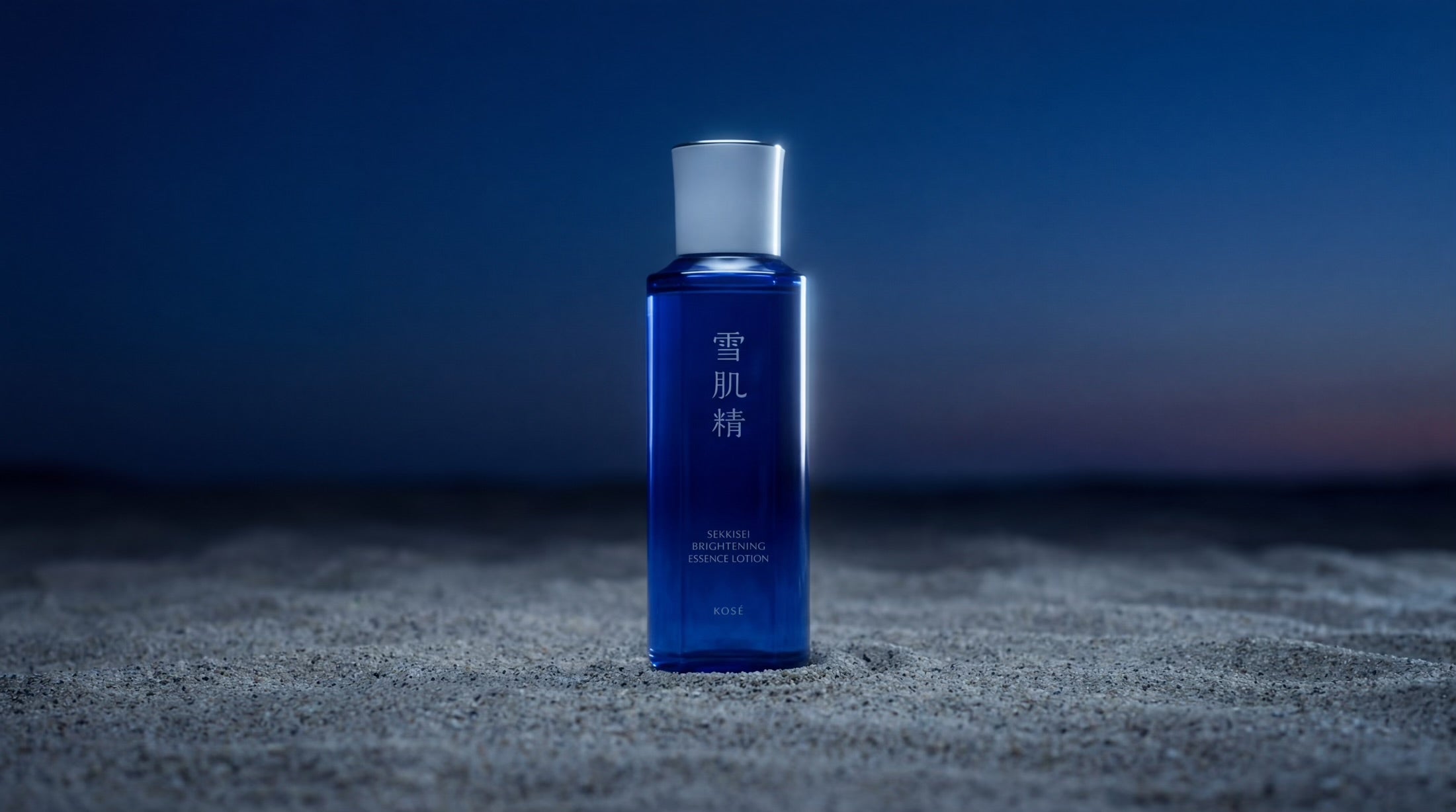
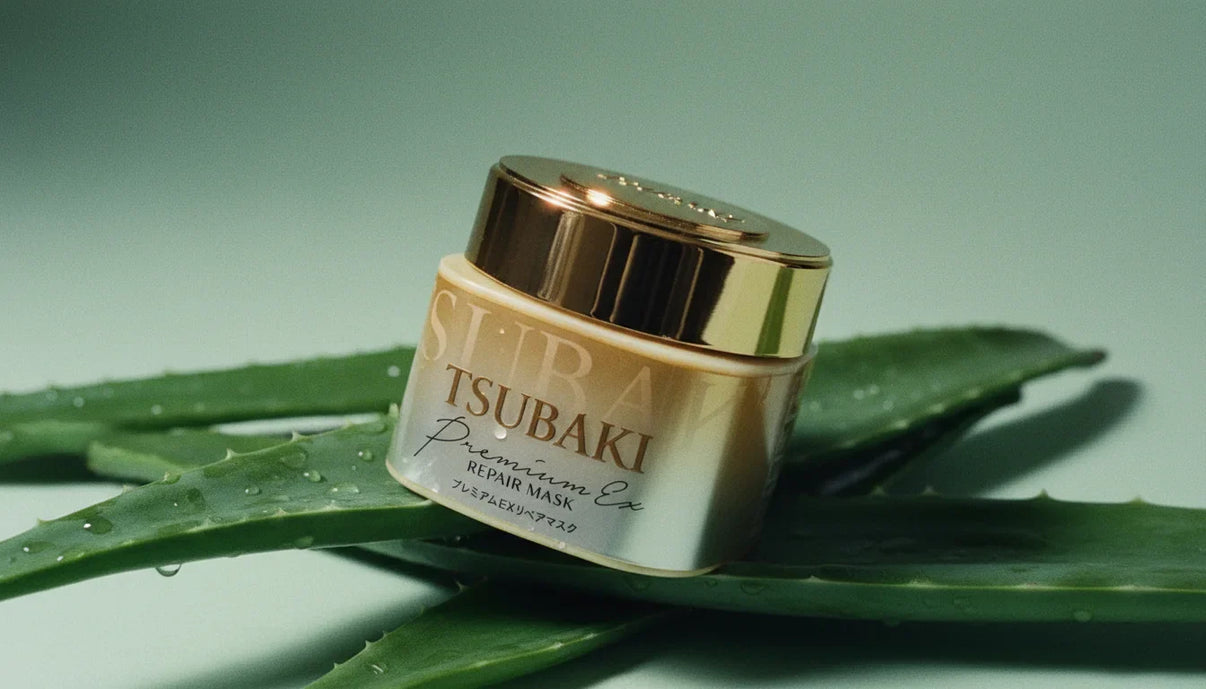
Share:
Japanese Diet for Weight Loss: Proven Strategies That Work
Top 10 Best Japanese Skincare Brands for Radiant Skin